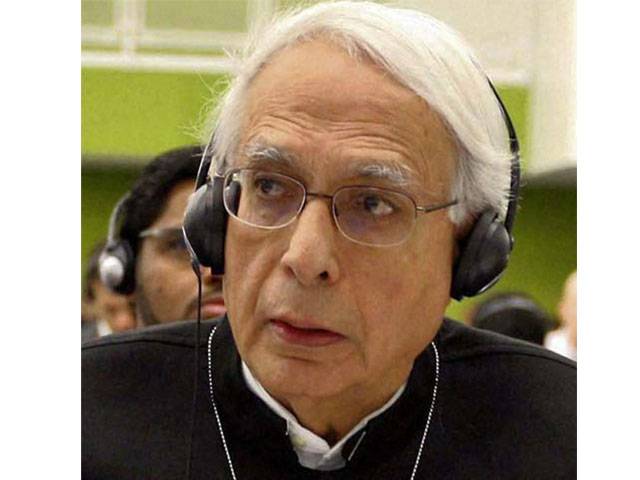NEW DELHI - A veteran politician from India's governing Congress party died Tuesday of multiple shotgun wounds he suffered in a Maoist ambush last month, officials said.
Vidya Charan Shukla, 84, was flown to a hospital near the national capital after the May 25 attack by several hundred Maoist guerrillas on a Congress motorcade in the insurgency-stricken state of Chhattisgarh.
Twenty-three people including local Congress leaders were massacred in the ambush in the forested Sukma area, 345 kilometers (215 miles) from the state capital Raipur.
Among those killed were Chhattisgarh state Congress chief Nand Kumar Patel, his son Dinesh and former state home minister Mahendra Karma, who had set up a controversial anti-Maoist militia group in 2005.
Shukla won a parliamentary seat in general elections in 1957 as a Congress candidate. Voters returned him to parliament eight more times.
Shukla, who was from a prominent political family, held a string of portfolios including foreign, home, defence and finance in various Congress party governments.
But his career was clouded by his role as information minister during the state of emergency imposed by then-Congress premier Indira Gandhi between 1975 and 1977, when opposition politicians were jailed and the media censored.
The attack which killed Shukla was the deadliest by the Maoists since 2010 when a rebel assault killed 76 police. It was the latest in a decades-long conflict pitting the rebels against authorities in the forests of mainly central and eastern India.
Both Congress Prime Minister Manmohan Singh and Congress party president Sonia Gandhi paid condolences to Shukla's family.
The Maoists, who have been fighting since 1967, want to establish a communist society by overthrowing what they call India's "semi-colonial, semi-feudal" form of rule.
The revolt has cost thousands of lives, according to authorities.
Critics say attempts to end the revolt through security offensives are doomed to failure. They insist the solution lies in better governance and development of the regions where the population lives in deep poverty.
Friday, April 19, 2024
India politician dies of Maoist ambush wounds

US vetoes Palestine’s bid for full UN membership
8:27 AM | April 19, 2024
20pc Discos employees involved in power theft: Minister
April 19, 2024
Five govt officials shot dead in D I Khan
April 19, 2024
Parvez Elahi’s indictment delayed again in two cases
April 19, 2024
Hepatitis Challenge
April 18, 2024
IMF Predictions
April 18, 2024
Wheat War
April 18, 2024
Rail Revival
April 17, 2024
Addressing Climate Change
April 17, 2024
Justice denied
April 18, 2024
AI dilemmas unveiled
April 18, 2024
Tax tangle
April 18, 2024
Workforce inequality
April 17, 2024
New partnerships
April 17, 2024
ePaper - Nawaiwaqt
Advertisement
Nawaiwaqt Group | Copyright © 2024





